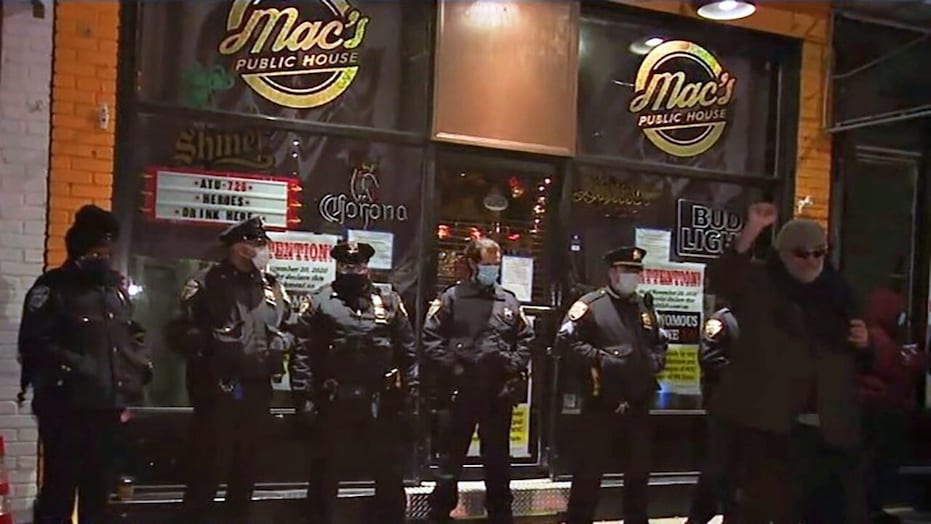New York City’s five boroughs are a rather diverse group. Each has its own character, and each produces a distinct breed of New Yorker. Even the two that share a land border – Brooklyn and Queens – have different “feels” and different attitudes.
Nowhere is this ‘diversity’ more apparent than in Staten Island, the least populous and, by other New Yorkers’ reckonings, the most remote. I’d speculate that most New Yorkers have never set foot in Staten Island, especially if we discount “pass-through” travel to or from New Jersey. Many Staten Islanders (several of my closest friends grew up there) consider themselves a breed apart from the ‘run-of-the-mill’ New Yorker. Of course, most New Yorkers have similar pride of origin (I’m a native son of Brooklyn, and I’ll remind you of that should I feel the need), but there’s a difference in the “forgotten borough.”
That is especially true in politics. Unlike the rest of the city, Staten Island went heavily for Trump this past election. It’s well-known to be the most Republican of the five boroughs, and it’s also well-known in its iconoclastic opposition to traditional NYC politics.
Thus, it should surprise no one that a bar whose owners chose to engage in a public act of disobedience regarding lockdown mandates prompted a large outpouring of support. Mac’s Bar declared itself an ‘autonomous zone,’ based on the Seattle precedent, and continued to serve patrons despite being ordered to shut down, despite having its liquor license suspended, and despite multiple visits from government officials. This being New York, where bigfoot politicians reserve their greatest rage for those who dare defy them (or simply refuse to bend the knee), the sledgehammer of government eventually came down and one of the owners was arrested.
Personally, I think this wasn’t the best hill to die on. COVID-19 has proven to be highly communicable and significantly more lethal, especially to the elderly, than the flu that kills tens of thousands of Americans every winter, and close, unprotected congregations such as occurred in Mac’s are reckless.
That opinion aside, I get it. I get the frustration that people feel. I get the existential angst that business owners are enduring. Most of all, I get the anger and resentment aimed at the politicians who set the COVID rules.
Today, a person’s attitude toward the pandemic can very likely be guessed simply by knowing his political leanings. Democrats think that Republicans are science-denying fools, Republicans think that Democrats are quivering sheep. Neither characterization is fair or broadly true, but it is true that a person who leans left is more likely to want coercive measures, and a person who leans right is more likely to bristle at them.
Partisans might leap to the easy conclusion that this difference is born of “the other side’s” stupidity or obstinacy or tribalism, but that’s a conclusion that ignores the underlying reality: All this behavior is the fruit of politicians’ hypocrisy.
From the get-go, COVID measures were infected with overt partisanship. Restrictions on gatherings were differentiated by purpose, as if the virus cared about why people were congregating. Political rallies favoring certain positions and messages? Nope, not allowed. Political rallies favoring certain other positions and messages? Sure, go ahead, they’re too important to be kiboshed. Other outdoor gatherings that, apart from a political message, were indistinguishable? No, not allowed. Church? Sorry, not essential, you can pray at home (millennia-old principles of apostolic succession notwithstanding). Thanksgiving dinner? Capacity: ten. Funeral? Capacity: thirty. Masks? For peons, hell-yes; for politicians, only if they want to. Stay at home? Again, for peons, yes; for society’s rulers, no. If one side said we must do X, the other side questioned or rejected it. If one side chose to recommend rather than mandate, the other side insisted on mandate.
None of these variations were born of evolving knowledge or honest mistakes based on incomplete or conflicting information. They were (and continue to be) rooted in politicians’ attitudes, their elevation of politics above all else, and their sense of self-importance. A good leader leads by example. A good leader doesn’t tell people “stay home,” then go out to dinner at a three star restaurant. A good leader puts forth a consistent set of rules, that serve all constituents, and that acknowledge their widely disparate needs. A good leader does not set rules that align with his personal beliefs as to relative importance of activities, and dismiss the wants and needs of those with disparate beliefs.
We don’t have many good leaders right now, and the few that might look to elevate policy over politics are flooded out by everyone else. It’s no surprise, then, that we’re witnessing both overt acts of civil disobedience, as with Mac’s of Staten Island, and a growing wave of non-compliance with guidelines, either mandated or suggested, that would help mitigate the spread of the virus.
Herein lies a lesson (one that I guarantee will go unheeded): In a time of crisis, a good leader should be neither partisan nor hypocritical. Rise above, and people will follow. Place demands that fail tests of fairness, decency, public service, and humility, and people will not.


Active Comment Threads
Most Commented Posts
Universal Background Checks – A Back Door to Universal Registration
COVID Mask Follies
When Everything Is Illegal…
An Anti-Vax Inflection Point?
“Not In My Name”
The Great Social Media Crackup
War Comes Through The Overton Window
The First Rule of Italian Driving
Most Active Commenters